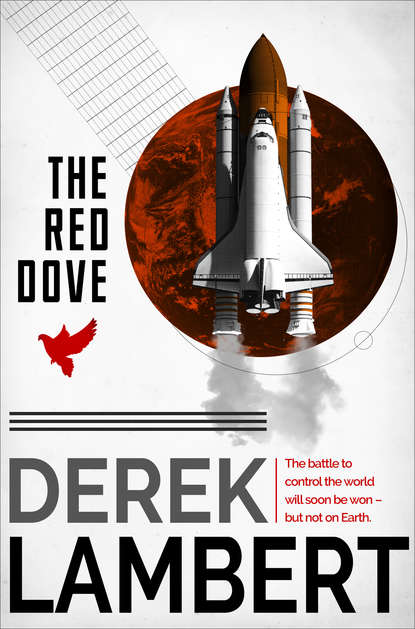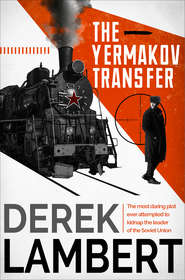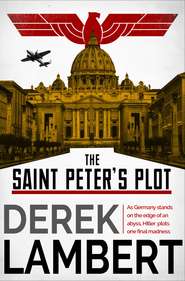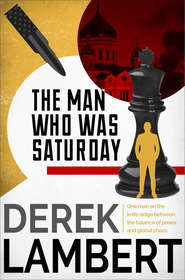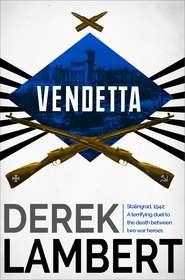По всем вопросам обращайтесь на: info@litportal.ru
(©) 2003-2024.
✖
The Red Dove
Автор
Год написания книги
2018
Настройки чтения
Размер шрифта
Высота строк
Поля
‘Dumb birds don’t keep this job, Mr President.’
‘And a rare bird,’ the President said.
Reynolds paused before lifting the axe. He was pleased there wasn’t any ache in his muscles. ‘Rare?’
‘You enjoy your profession in an age when it’s fashionable to be masochistic about it. Do you ever read about happy spies these days?’
Reynolds considered this. Was he happy? He’d never really thought about it. Perhaps that indicated happiness; no, a more neutral condition, at best contentment. What ensured that contentment was the knowledge that he was the only man to do his job, the only man in an age of doubt to acknowledge that to help your country to survive you had to be devious and ruthless.
In his devious and ruthless way Reynolds was the ultimate patriot and his life was littered with sacrifices. No wife and children, no real home. No social life to speak of. He had dispensed with these in the interests of efficiency.
A warm breeze ruffled Reynolds’ baby-silk hair as he said: ‘I never read about fictional spies, Mr President.’ He swung the axe.
‘But you are human and you are wondering why I brought you here.’ The President’s voice became more incisive. ‘My term of office comes to an end in just over a year in November 1984.’
‘But not necessarily your Presidency.’
‘I’m a bit old in the tooth to stand again for election.’
‘Not you,’ Reynolds said.
‘Well, I’m going to anyway, George.’
‘I’m glad to hear it.’ Reynolds paused. ‘Really glad.’
‘But I need something to rejuvenate me in the public eye.’
Reynolds tugged the axe from the trunk of the redwood. The tree was beginning to lean, trapping the blade. ‘Not necessary,’ he said. ‘You’ve still got the looks, the brain, the body. Hell, you don’t look any older than –’
‘Leonid Brezhnev?’
‘Twenty years younger.’
‘Thank you, George. Old men need flattery. Then let’s put it another way, a way that will appeal to you: the United States needs a boost. The Russians have been calling the shots lately, it’s time we called the tune.’
‘What had you in mind?’ Reynolds asked cautiously. He leaned on the axe. The wood at the apex of the triangular wound made by the axe groaned as the tree swayed.
‘First there was Afghanistan,’ the President said. ‘Then there was Poland.’
‘But they withdrew from Poland.’
‘In their own good time.’
‘They’d still be there if it wasn’t for the stand you made.’
‘Never mind, they made their point, re-affirmed their strength. Then they threw out twenty of our diplomats from Moscow. All your men, George.’
‘We reciprocated,’ Reynolds reminded him.
‘Fantastic! Great PR. Reciprocation – diplomatic bullshit for playing second fiddle.’
The conversation was being honed into an attack. But what, Reynolds wondered, was he being set up for? The helicopter returned; the two guards looked up, hands instinctively moving towards their guns; one of them spoke into his radio-set, they both relaxed.
Reynolds waited.
The President said: ‘Here, let me finish the job, put the tree out of its agony.’ He reached for the axe. ‘What we need, George, is a spectacular.’ To the two guards he shouted: ‘Better move your asses, she’s about to go.’
The two big men, one bald, one heavily moustached, moved away looking ruffled – their vantage point had been carefully calculated and falling trees had no part in their scheme of things.
‘A spectacular?’
‘Before the election,’ the President said. He examined the wound in the tree, stared calculatingly at the ranch. To Reynolds who was only a rustic by default it still looked as though the tree would smash through the roof. ‘Three more strikes should do it.’
The President walked to the other side of the leaning redwood and measured his swing. The blade sliced into the hinge of wood still holding the trunk.
Reynolds joined the President who was spacing his last blows. ‘What sort of a spectacular?’ he asked.
‘Think like a Russian,’ the President said. ‘Think what they’d like to do to us – then do it first.’
The second blow thudded into the tree.
‘How long did I invite you for, George?’
‘Three days,’ Reynolds told him.
‘Then that’s how long you’ve got. I’d like an outline of your project before dinner on Saturday.’
‘And if I can’t make it by then?’
‘The atmosphere over dinner will be strained.’
The President wiped the sweat from his forehead with the back of his hand. The muscles on his arms and chest tensed. He had said the third blow and the third blow it had to be.
Steel met wood. The tree creaked. Swayed. Leaned into space and crashed to the ground twenty-five yards to the right of the ranch-house.
As it happened the idea came to Reynolds just before dinner that night. He wondered if it had occurred to him before only to be rejected by his subconscious because of its sheer audacity.
He was drinking a martini with the President and his wife in the lounge of the ranch-house, a long beamed room stamped with the President’s personality. There were islands of skins on the tiled floor, historical bric-à-brac from the Wild West on the walls and shelves. A stone fireplace that still smelled of winter fires occupied one corner; through an opened window the great outdoors breathed indoors.
The President’s wife, slight and blonde and astute with a smile that was both practised and genuine, held up the cocktail shaker. ‘Another, George?’
He shook his head. One on working days, two on vacations; today, like most days, had developed into a working day.
She didn’t pursue it; she was an accomplished hostess who had brought back The Grand Style to the White House. Dressed now in a French-blue dress, the First Lady even managed to instil sophistication into the Ponderosa setting. Her husband hadn’t tried, he wore a check shirt and slacks.
She said to Reynolds: ‘We thought we’d watch the touchdown before dinner. Is that all right with you?’ Without waiting for an answer she switched on the TV set beside the wall-to-ceiling book-shelves.
Mission Control at Johnson Space Center, Houston, flickered into view, followed by a shot of the 15,000-foot runway at the Kennedy Center in Florida where the fourth Space Train to be sent into orbit was due to land.





